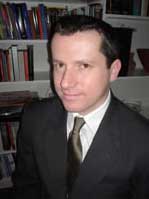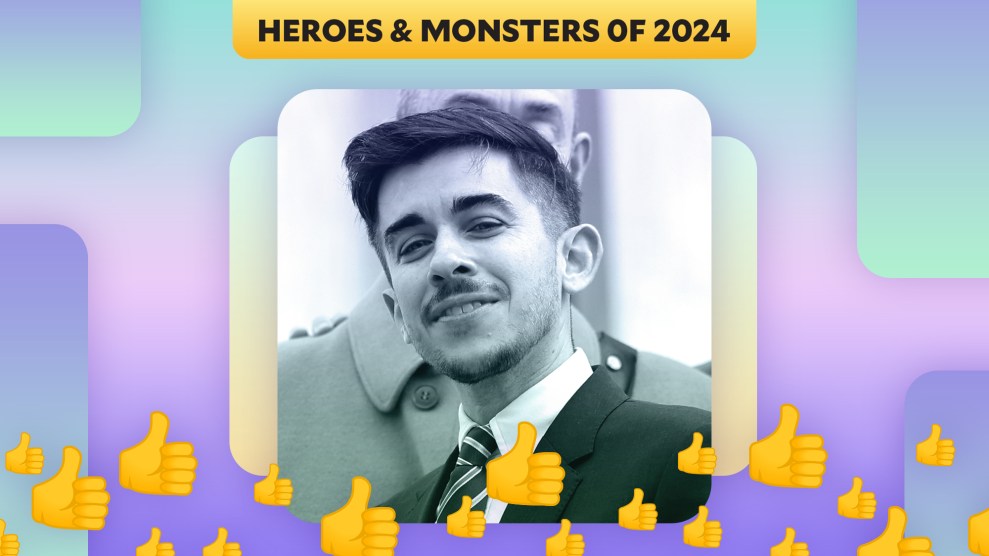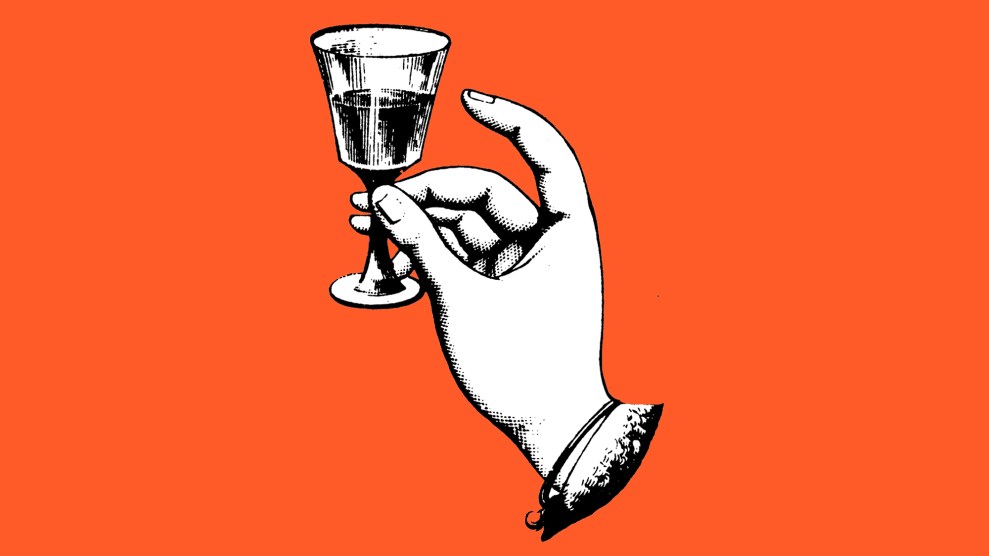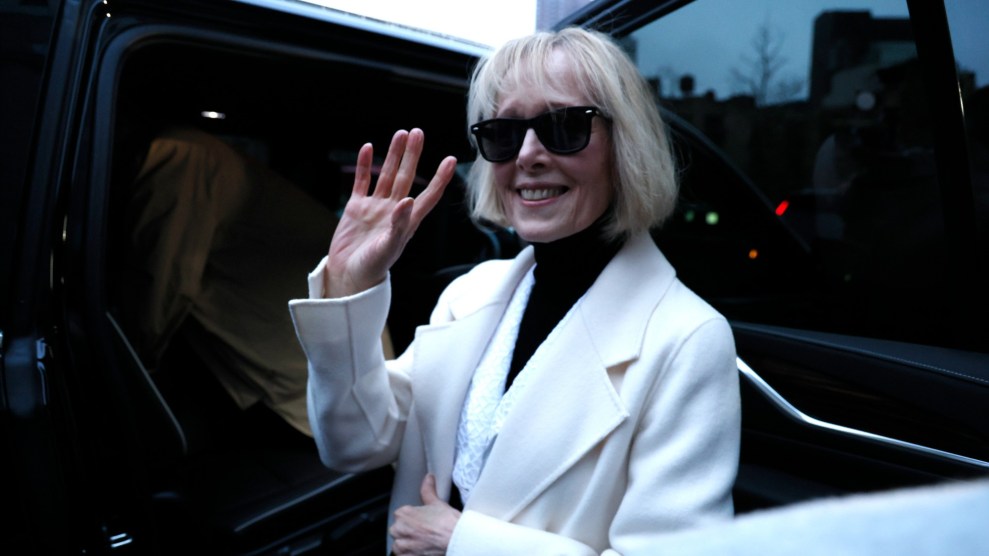
An unlikely revolutionary, Carne Ross was once a rising star in the British Foreign Office (the equivalent of the U.S. State Department), where, among other postings, he worked as a speechwriter for the Foreign Secretary and later as the Middle East expert assigned to the U.K.’s delegation to the U.N. Security Council. It was during his time at the U.N. that he became disillusioned with the current state of diplomacy, an experience that forms the basis for his recent book, Independent Diplomat: Dispatches from an Unaccountable Elite.
During the run-up to the Iraq War, Ross was in the unique position to see the official intelligence about Iraq’s supposed stockpiles of weapons of mass destruction. What he learned was disturbing: there was no concrete evidence that Iraq had reconstituted its nuclear, biological, or chemical weapons programs. This fact, however, did not seem to figure into the policy-making decisions that made the U.S.-led invasion all but inevitable. In 2004, Ross testified as much to the Butler Inquiry, a British parliamentary investigation into the misuse of pre-war intelligence. His comments were not well received by the British government, which invoked the U.K.’s Official Secrets Act to suppress the transcript of his testimony. Ross resigned from the Foreign Office in 2004 and went on to found Independent Diplomat, the world’s first private diplomatic organization, which instructs representatives from underserved and underrepresented countries in how to make their voices heard. Mother Jones spoke with Ross on July 19.
Mother Jones: You have written that your critical view of how diplomacy is practiced was formed over time. But was there a moment when it all began to crystallize for you?
Carne Ross: The key experience for me was my time as a British diplomat at the U.N. Security Council in New York. In some ways, that was more important than the Iraq war. What I saw on the Security Council—the way that international law is made and the way that the needs of suffering people are often ignored—was what led to my conclusions about diplomacy. After that job, I took a secondment to the UN mission in Kosovo, partly as a way of testing out the U.N. as a possible future career for me. In June 2004, I testified to a British government inquiry on the use of intelligence on Iraqi weapons of mass destruction. It was an experience that crystallized my anxieties over the Iraq War, and shortly afterwards I resigned from the British Foreign Office.
MJ: If you had access to information indicating that claims about Iraq’s WMD were not true, why didn’t you resign earlier? There were U.S. diplomats who resigned in the run-up to the war. Did it ever cross your mind to do so?
CR: Yes, it did. I drafted many letters of resignation during that period which I didn’t send. There were two reasons for this. One was doubt. One of the problems with the Iraq intelligence issue was that there was no official who could claim he knew the absolute totality of the information available. It was not impossible to me that there was new information; in retrospect, this turned out not to be the case. I had also spent many years working against the Saddam government, so I was not totally hostile to the idea of it being removed, including by force. I was ambivalent about the war. But above all, I was afraid of what would happen to me if I were to resign—afraid in terms of my own professional future, but also afraid of the public battering I would doubtless receive. That was probably the most important reason. I’m not proud to confess it, but it’s the truth.
MJ: Were there others that you knew or were aware of either at the U.N. or the foreign office who expressed similar feelings, maybe in private conversations you had with them?
CR: Well, I was quite isolated in New York, because I was away from most of my British colleagues in the government who were in London. But I was aware of quite a number of officials who had doubts. I suppose the most important of them was a guy called David Kelly, who was a British weapons scientist who later committed suicide after being outed as the source of a BBC story that the government had exaggerated its account of Iraqi WMD.
MJ: If people in your office had private doubts, but nothing was done at an official level, doesn’t that signal that something is amiss?
CR: Well, I think you’re right. I think something is seriously amiss. There is nothing more serious than the decision to go to war, and I think both the U.S. and U.K. governments mishandled that decision in a very serious way. There are very, very few people who are qualified to say this, but I’m one of them, because I worked on it. The policy was not straightforward; it was quite complicated and technical. This was one of the reasons why senior officials and executive decision-makers did not address it properly. This is a systematic problem, a systemic problem of policy-making.
MJ: You’re suggesting that the complicated nature of modern diplomacy is one of the primary factors contributing to its failure?
CR: Yes. With regard to Iraq policy, the complexity and the long-term and uncertain nature of sanctions enforcement meant that it didn’t have the binary clarity of military invasion or not. That may have meant that it got less attention than it deserved as a policy option. I have to say, though, that this is not the only explanation. I think that decision-makers deliberately ignored available alternatives. There was, for whatever reason, a very clear and deliberate decision to go to war come what may.
MJ: When you decided to leave the British government and go into private practice, how did your colleagues react?
CR: It was mixed. Some were hostile, though few to my face. Some commended me for my bravery, though none dared do so in public. Some said to me they would have done the same if they had worked as closely on the issue as I had, in other words making an excuse for themselves that they had not resigned. Many simply patronized me and said they hoped I would survive my unbearable exit from the comforts of the British Foreign Office.
MJ: You’ve characterized diplomats as an “unaccountable global elite.” But you’ve also accused the rest of us of being irresponsible for ceding power too readily to invisible people working behind the scenes. What do you suggest we do about it?
CR: Perhaps my book is a little too scathing. It is driven by a lot of anger and anxiety about the way things are. But I do think that globally we are far too deferential to diplomats and politicians to make decisions of enormous import on our behalf. I find it staggering that we’re not more critical and demanding of scrutiny of these decision-makers. These are decisions about things of the utmost importance, from war to climate change to terrorism to migration, and there is a great tendency to accept the assurances of the diplomatic and political establishments that they have these problems in their grip when I think the evidence suggests that they do not.
MJ: You have gone so far as to recommend that we do away with professional diplomats entirely.
CR: This is something Trotsky would call a transitional demand. You don’t realistically expect it to be fulfilled, but in making it you hope to change the system towards fulfillment of that ideal. I don’t for one second think that we face the imminent end of the state-based diplomatic system. However, I think that system is deeply, deeply flawed. Above all because it allows this practice called “diplomacy,” which is permitted to operate by rules that are amoral and largely free from scrutiny. It’s a practice in which small groups of people make enormously important decisions on the basis of fairly arbitrary criteria. I know this from my own experience. This is not an external critique. I as a policymaker on the Middle East and on other issues contributed to decisions about policy that were arbitrary and premised on an invented calculus of what we thought was important. This is not the manner in which policy should be made. There should be much more open participation and democratic accountability.
MJ: You write in your book: “Diplomacy should take a more eclectic approach to information, and allow discussion and examination of emotion and non-measurable elements of reality, or at least acknowledge this deficit in its calculations.” What do you mean by that?
CR: The basic idea is that not everything that is important to us can be put into prescriptive, numeric, or empirical terms. Arguably, the most important things cannot be. It is harder to make a decision about a situation when you are far removed from that situation, which is invariably the case with diplomacy. Somehow, we have to account for this deficit when making decisions about other places. One way to address it would be to allow those most affected by a given policy to speak to the decision-makers, which happens all too infrequently. Above all, we have in contemporary culture and politics placed a great reliance on empirical information to convey the quote-unquote “truth” of a situation when no amount of empirical information can convey the whole truth. All description is inevitably reductionist. I suppose it can be easily encapsulated in what happened in our decision-making about sanctions on Iraq. Without doubt, sanctions helped contribute to considerable human suffering in Iraq, and I think had we been more aware of that reality and more conscious of that reality, able to feel that reality, then we as decision-makers drafting resolutions in New York about sanctions in Iraq would have made different decisions. Our decisions were ultimately inhumane because they failed to take full account of the reality of the Iraqi people.
MJ: Another thing you focus on in your book is the language that diplomats use in the course of doing their work. You call it a “reduction of reality.” I wonder, though, how does Independent Diplomat deviate from this norm? If you’re representing clients within the existing system, don’t you have to play by those rules if you want to be heard?
CR: Of course we have to play by the rules of the existing game. Until the rules are changed we have no choice. Our work is to explain the rules of the game to our clients who are often intimidated or excluded or just don’t understand the way that it’s played. That’s the value and the contribution that Independent Diplomat can make, but there’s no doubt that my long-term ambition is to see the system changed. Quite how that will happen I don’t know. It’s not in my hands. However, I think that the mere existence Independent Diplomat indicates that the system as it is currently constituted is not fair and it is not working effectively.
MJ: How many clients do you have at the moment?
CR: We have five now: Kosovo, Croatia, Turkish Cyprus, Somaliland, and the Polisario movement of the Western Sahara.
MJ: I realize it’s early in the game, but can you point to any obvious successes you’ve had with your clients, or alternatively, the biggest challenges you face in working with them?
CR: The biggest challenge is simply the way that the powerful defend what they think are their interests. Powerful countries tend to try and control decision-making little realizing that in the long-run by excluding people they will inevitably face problems and their decisions will not be sustainable. You can’t change the nature of power. I do think we make a difference for our clients, though, not least because we’ve enabled them to understand the system from the perspective of people who were very much inside the box. We are experienced former diplomats who’ve usually worked for powerful countries. It’s kind of like gamekeeper turned poacher, and I think we make a difference for our clients in that respect.
MJ: Are there any governments you would not work for?
CR: Yes, there are many governments we would not work for. We will only help those who are committed to democracy, human rights, and international law.
MJ: Would you ever work for a country that was engaged in a shooting war?
CR: It wholly depends. We don’t necessarily rule out helping people engaged in conflict. Our work is primarily focused on conflict areas because we believe that conflict or tension can be reduced if people have access to good diplomacy. If they’re able to articulate their needs in the world’s diplomatic system, that in itself contributes to a reduction in tension.
MJ: When I learned of Independent Diplomat, one of the parallels that immediately occurred to me was the privatization in military services. It seemed like just another in the long list of things that have traditionally been the sole domain of nation states, but which are now increasingly in the hands of private industry. Is there any cause for concern here, and how do you see yourself fitting within that framework?
CR: I do think that there is a proliferation of private groups involved in not only diplomacy but also military operations: the sorts of things that governments used to preserve just for themselves. I would make a very clear distinction between Independent Diplomat and the private military industry in that we operate along very clear ethical criteria. We only help the disadvantaged. But, of course, there could easily be another private diplomatic organization that did not operate by those criteria, that merely worked for the highest bidder. Indeed, there are commercial companies out there—PR companies, law firms—that will effectively do diplomacy for money. They will help clients draft treaties, they will help them improve their PR image, things like that, without regard to the ethical record of their clients. I don’t celebrate this development, but I think it is the way things are going. I personally would like to see a lot more activity by individuals and NGOs to try and break through the walls of traditional diplomacy. I don’t think in my experience that governments have done a particularly good job, and I’m not sure that I regard it as wholly a bad thing that they are losing some of their sovereignty in this area.
MJ: What specifically are the services that you provide? I got the impression from your book that you would prefer people from these underrepresented areas to represent themselves. Are you generally instructing them in the mechanics of how to do that: writing speeches, negotiating strategies, working with the media? Or are you involved with setting their policy goals?
CR: No, we believe very strongly that the goals of policy are for them to decide. We merely help advise them on how to reach those goals. We’re not one of these NGOs that go around telling our clients what they should want. What we do is explain the often obscure architecture of international diplomacy, giving them advice about how to engage with that architecture, how to craft their message, whom to lobby, what messages to develop, what techniques to use—practical and strategic advice.
MJ: You spent the first part of your career with the British government, enjoying the perks of your association with a powerful country and the benefits of a system that was structured to enhance and maintain that power. What has it been like for you personally to sit on the other side of the table?
CR: Well, the first couple of years were very hard. I felt lost without my identity as a British diplomat. But now I find it very enjoyable, if extremely challenging, working on behalf of our clients. The best thing about it is learning about the way they see the world which is invariably very different from the way I used to see the world as a British diplomat. That’s always refreshing. And there is a degree of candor and honesty in these relationships that I never enjoyed as a British diplomat. Being a British diplomat, you were always treated as a British diplomat. People said to you things that they wanted the British government to hear. Now I have a much more intimate and open relationship with the countries we work with, which is very rewarding. All that said, it is still really difficult working with relatively less powerful countries and governments. The sorts of things that you could do as a British official—like take your concerns to Washington or to the U.N. Security Council—are simply not an option to the vast majority of other countries’ governments and peoples. So, you have to think of something else. There’s a constant challenge to be creative, to make the most of what little power our clients have.
MJ: How hopeful are you that this “diplomatic deficit” can be closed?
CR: In terms of information and the transparency of the system, I’m very optimistic. I think the system is becoming more transparent. There are more NGOs opening up the system, providing information about it. The Internet has provided a lot of high-quality information that was hitherto hard to get hold of, although you still have to know where to look. In that sense, I think things are better. Also, I think globally there is a less deferential culture towards political elites than there used to be. But in terms of changing the architecture, the fundamental sort of underlying system of power, I’m not optimistic at all. I think those who have power use it in an extremely shortsighted and often foolish way, which exacerbates rather than solves our problems. I’m not confident that newer, younger generations of leaders will learn these lessons. I don’t believe automatically in progress. I think each generation may bring its own stupidities and prejudices.
MJ: Well, on that hopeful note…
CR: It’s not a very optimistic note on which to end. I do find encouragement in things like Live 8 and LiveEarth and things like that. On the other hand, I think these things are often easy for politicians to exploit or ignore, and those politicians often work on very narrow and self-interested criteria of decision-making. Rare is the politician or leader who has a truly global perspective. The truth is, we have global problems, and our politicians are national and short-term. Until that basic equation alters, I think we will continue to have problems.















